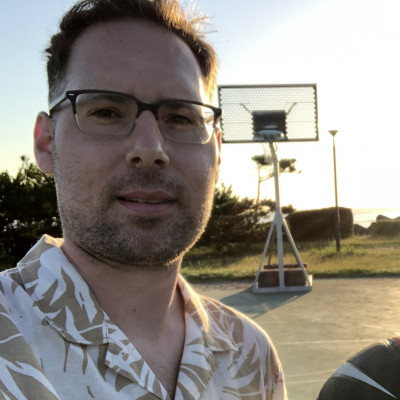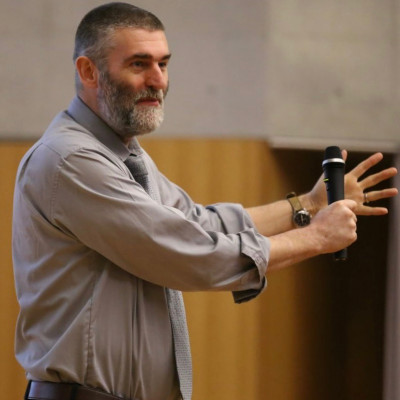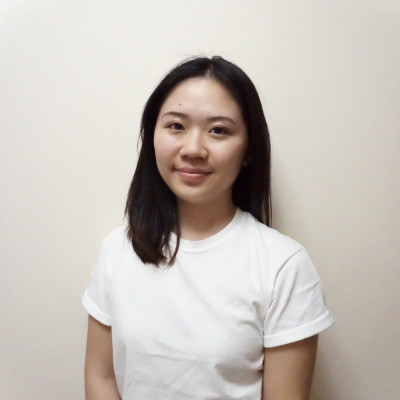Sessions / Location Name: Room E
Virtual Location
Virtual: You cannot enter virtually via this page. Click on the titles of individual presentations or go to the Live Page
Will virtual classrooms flourish or wither? #1446
The author invites JALTCALL participants to a BOF (birds-of-a-feather) meeting where everybody thinks out loud in an informal setting. Data, analyses, and predictions of pre- mid- and post-pandemic virtual classrooms are scarce because the situation is developing. Before the COVID-19 pandemic, some teachers and schools chose to use virtual classrooms. During the pandemic, many teachers and schools were forced to use virtual classrooms. Soon, we hope, the pandemic ends. How widely will virtual classrooms continue to be used? Will teachers and students return to pre-pandemic format? Or will they continue to prefer virtual classes? What variables (such as the student's age, or class size, or subject matter) might affect the choice between real and virtual classes? Nobody knows what the "new normal" will be. Let us attempt to predict, in order to prepare. The author will provide objective data and subjective analyses. Members of the audience are encouraged to voice their observations and intuitions. A link to an online survey will be announced before the conference to bootstrap discussion. Outcomes of this session may be reported at JALT-2021.
Maximizing the podcast: Building receptive and productive vocabulary skills with each episode #1499
The purpose of this presentation is to share findings related to the use of podcasts to build vocabulary retention and production skills while promoting speaking confidence in English language learners. First, studies on previous applications of podcasting in language acquisition and the effects of such uses on the development of students’ skills are explored. The presenter will then detail the way podcasts are used in each lesson to maximize retention of the vocabulary phrases and their use by providing a sample of the flow of each lesson. There will be a demonstration of how to use the mobile podcasting app to allow collaboration during remote teaching. In addition, participants will hear a sample of an episode from the student-produced weekly podcast, which is based on conversation topics presented through a teacher-selected ESL podcast. In each student-produced episode, students summarize the contents of that week’s podcast and then personalize the material by sharing their opinions or experiences pertaining to the situations presented in each episode. Subsequently, the affective measure of confidence and the increased use of new vocabulary phrases are investigated by analyzing student podcast content and sharing questionnaire results. Participants are members of an advanced Conversation & Listening class as part of a 14-week academic Continuing Education IEP (Intensive English Program). They are part of 2 intact classes of 13 students total, whose ages range from 22 to 48 with a median age of 35. The class is comprised of 10 females and 3 males, and the majority of them have studied English for 2 years or less. However about 20% of them have studied English for 5 to 7 years. They are currently studying at the highest level at Long Island University in the US, which is B2 and C1.
Attendees will come away with a solid methodology for using podcasts as a main teaching tool in their classrooms, including a worksheet sample and suggestions for appropriate podcasts for English Language Learners. They will also understand how to use a particular podcasting app.
The effects of gamified instruction on Japanese English language learner vocabulary recall #1422
In this study, the effects of web-based, gamified vocabulary instruction (through Quizlet’s Match activity and online leaderboards) on assessment scores and student motivation are examined. The primary features of gamification present in this study include ‘conditions for victory’ and leaderboards. Japanese English language learners from two online Listening and Speaking courses at Kyushu Sangyo University took part in this experimental study. The control and experimental groups initially received identical vocabulary instruction, and in week 8, both classes took a vocabulary recall assessment (75 words). Afterwards, gamified vocabulary instruction (via the Quizlet application’s Match game) was introduced only to Class B (the experimental group). At the end of the semester, a second vocabulary recall assessment was administered to both classes (75 new words). Previous studies have claimed that gamified instruction increases a learner’s motivation to (a) study a second language and (b) study second language vocabulary. Results of the final assessment indicate that gamified vocabulary instruction through Quizlet’s competitive Match game and the use of a public leaderboard have a positive effect on vocabulary assessment scores. However, quantitative student feedback from this study suggests this manner of gamified instruction may not affect Japanese English Language Learner’s (ELL) motivation to study English or English vocabulary.
Medical Student Life In Japan - A Podcast Is Born #1461
Our small medical university prides itself in having a program for 2nd year students to travel to countries across the globe to participate in a research clerkship. The program includes a two-semester advanced English class prior to departure. However, the program was suddenly canceled last year due to the pandemic. This forced me to reconsider the contents of the class. I decided to create a new class on the fly that would allow students to not only continue to improve their English skills, but also communicate with people around the world. This was the genesis of English communication - Podcasts & Podcasting. Essentially, this course introduces podcasting, a medium for communication rapidly growing in popularity around the world, to students and leads to a class-created podcast. With that, the Medical Student Life in JAPAN podcast was born. This presentation will show you how we created it in detail and tell you about the challenges and successes we have encountered along the way. I will also walk you through all of the devices and technologies used so that you will be able to try something similar at your own institutions.
English Bento: Providing high-quality speaking opportunities with micro-learning, feedback and gamification #1454
Providing low to intermediate language learners opportunities to practice speaking is challenging. Traditional choral listen-and-repeat class activities have been replaced with shadowing practice or recording apps, but the problem is still one of providing sufficient individual corrective feedback, accurate speech models and student engagement. The English Bento app solves these issues by implementing the principles of micro-learning, feedback, gamification and fluency training into its design. The student app provides these features while the dashboard allows teachers to track students’ progress using three metrics: progress, score, and time-on-task. The presentation will be split into 2 parts, the first will briefly demonstrate each activity and the educational principles that drive them. The second half will be a description of the instructor dashboard which allows teachers to create classes, set assignments and track students’ progress using three metrics. The interplay of progress, score, and time-on-task allow teachers to make nuanced interpretations of students' learning progress. The presentation ends with a brief description of how English Bento can be used inside and outside of the classroom in remote and face-to-face environments. English Bento is available free to students for both Android and iOS devices. See their website at englishbento.com for more information.
Minecraft as an immersive language teaching world: English teachers’ TPACK #1459
Since schooling has been affected by the pandemic, educators are beginning to be more open to distance learning and might become more open to immersive virtual worlds, such as Minecraft (Cleave & Geijsman, 2020; Egbert, 2020). However, in order to integrate new technology into their practice, teachers need to be provided with training that promotes the development of their Technological Pedagogical Content Knowledge (TPACK) (Koehler & Mishra, 2009). This study identifies the level of TPACK teachers need to integrate Minecraft English teaching by investigating twenty-nine elementary school English teachers who created Minecraft English lessons after receiving Minecraft professional development for 16 hours in two months. A Minecraft TPACK instrument for English teachers was developed based on Schmidt et al. (2009) and Bagheri (2020) and administered before and after the training. Five Minecraft English lessons were created as a result of the training. The results showed an overall improvement in Minecraft TPACK scores. The English teacher’s Minecraft content knowledge gained from M=1.98 to M=3.79, Minecraft Technological Pedagogical Knowledge gained from M= 1.86 to M=3.6, and the TPACK mean score gained from M=2.5 to M=3.93, indicating that they are more knowledgeable of how to teach English through Minecraft. In the presentation, the results of the study will be discussed with a focus on an analysis of the content, technology, and pedagogy incorporated in the Minecraft in-world lessons and supplementary materials using Kahoot, Bamboozle, and Nearpod that the English teachers have created. Also, the merits, affordances, and challenges for teachers to integrate Minecraft as a language teaching environment will be discussed.
Japanese University Student Attitudes and Engagement with an online Flipped Learning Approach #1421
Flipped or blended learning has grown in popularity recently with its focus on student-centred learning and its use of technology. The current study introduced a flipped learning approach in combination with synchronous online classes at a Japanese university during the COVID-19 pandemic. 106 first-year students who were taking a mandatory English discussion course participated in the study. Students appeared to view flipped learning favourably, the main advantages noted were that they felt well-prepared for classes, perceived improvements in their English abilities and valued the increased chances for interaction. A range of different methods of interaction were used in the course and student attitudes towards these will be discussed along with possible pedagogical implications. Additionally, many students perceived improvements in their ability to self-regulate their learning. However, a decline in engagement with flipped learning materials was seen as the course progressed. Whilst engagement declined with some materials, there was consistently high engagement with graded materials which suggests incorporating flipped learning tasks into student grades may be one way to ensure students remain engaged. The study offers some support for the trend towards using flipped learning as it has the potential to make Japanese students more active learners yet there is also a need for further research to understand the factors which led some students to be more engaged with the method than others.
Made in Japan solutions for emergency remote teaching #1392
This presentation will introduce three software services designed to facilitate online, hybrid, blended or face-to-face language teaching and learning: Record MP3 Online, LingoLab.Live, and TeacherTools.Digital. Each of these services was created by language teachers currently living and working in Japan and offer a number of solutions to the problems brought on by the COVID-19 pandemic. Record MP3 Online enables teachers to administer online speaking assignments via a URL and store the submissions in a central folder. LingoLab.Live is online real-time multiplayer quiz game (similar to QuizletLive or Kahoot) which students can join by smartphone or computer. TeacherTools.Digital is a mobile-friendly content authoring platform that enables teachers to create assignments that challenge learners in all four skills areas: speaking, listening, reading and writing. What makes each of these platforms unique is that no student registration or login is required, which significantly reduces the time and effort required for onboarding. The presenter will provide an overview of each service and provide tips and insight as to how they can be utilized effectively within the classroom.
Remotely Replacing the Real #1430
This presentation details the experiences of the disruption COVID-19 caused to the educational plans of a Japanese high school graduate accepted to a prestigious Australian university undergraduate program. With the preparatory year derailed, this session shows how a remote learning experience was designed and delivered by this presenter to replace the real, on-campus, academic skills foundation year she was supposed to have been doing. The session highlights the learning outcomes, the learning outcome indicators, and overall objectives desired and aims to measure how well these were achieved. This will be accomplished by the student giving a personal report on how well she progressed in her first semester (also held online via ERT style on Zoom) in her university coursework, and how prepared she felt overall after this intensive online program. We will give an overview of the tasks completed during this 10 month course, the real world learning opportunities we were able to create, and how she felt after completing them. After this conclusion, the session will end with a free flowing Q and A / discussion section.
Enhancing formative feedback in online academic writing classes using personalized screencasts #1424
This presentation will describe the findings of a recently completed exploratory study that examined the effectiveness of using screencast feedback to improve the essay revision process of students’ writing in an undergraduate academic writing course. Participants (N=20) were tasked with completing and revising two 1500-word essays during a 15-week course. While the writing tasks for all participants were the same, the type of feedback they received depended on whether they were in the control or experimental group. In the control group (N=12), participants were given ‘traditional’ written feedback on their essays where the instructor made annotations, comments, and suggestions on a Microsoft Word document. In the experimental group (N=8), participants received feedback in the form of a screencast video which included audio comments and suggestions for revising problematic aspects of the essays. The revised essays were then analyzed to compare whether the type of feedback had an effect on the quality of revision and whether students engaged in self-correction. The results showed that participants who received screencast feedback evaluated it more positively than written feedback, completed a higher percentage of revisions, and engaged in more instances of self-correction. Further findings indicated that this multimodal approach to providing feedback helped build a rapport between the teacher and students which led to increased motivation and task engagement. This presentation will be of particular interest to educators looking for an innovative approach to providing personalized, formative feedback using screencasts in face-to-face or online learning environments.
Going paperless with Showbie #1385
In this presentation, the presenter will demonstrate how teachers can transform their classroom into an engaging and collaborative hybrid-learning environment with the help of Showbie, a classroom management tool. Showbie is a cross-platform application used by teachers to assign, collect, and review student work. However, it houses a myriad of features that go far beyond simply assigning and turning in work digitally. Showbie gives users the ability to store and share documents that can be annotated utilizing a digital pen, text boxes, and embedded voice notes. Using the Pro version of Showbie, teachers can host online discussions, create private group chats, and have students collaborate on projects both synchronously and asynchronously. Furthermore, Showbie is incredibly user-friendly making it easy for even the least tech-savvy teacher to create an account, invite students, and share a digital assignment with their entire class in just a few minutes. The presenter will give concrete examples of how Showbie can help educators to achieve a truly paperless curriculum that will both enhance and transform language learning.
Using Poodll Languages auto-graded activities for efficient learning #1631
Using Poodll Languages autograded activities for efficient learning Poodll Languages is a set of four formative assessment applications for language learners. The applications are ReadAloud (oral reading), Wordcards (vocabulary acquisition), MiniLesson (listening and speaking) and Solo (open speech assessment). Each activity can be graded automatically, freeing up teacher time and giving students immediate feedback and the opportunity to re-attempt at will.
In the presentation the Poodll founder and lead developer will introduce and demonstrate each activity. Poodll Languages is developed for use on the Moodle LMS but can also be used with Blackboard, Canvas and other LTI compatible LMSs.
Hedging in academic writing: Cross-disciplinary comparisons in the Michigan Corpus of Upper-Level Student Papers (MICUSP) #1418
With the rise of remote learning during the COVID-19 pandemic, computer-assisted language learning (CALL) has taken on renewed salience. This presentation will discuss the affordances of corpus tools for data-driven teaching for tertiary academic writing. It will explore a corpus of advanced student writing to provide new answers to an old but important question in EAP teaching: Hedging in academic writing. Authors of academic papers often use hedging to present their claims cautiously and as a politeness strategy. Based on the findings of a study that compares hedging devices across 16 disciplines in 829 advanced student papers from the MICUSP corpus (http://micusp.elicorpora.info), the presentation will cover inter-disciplinary differences in hedging frequency, forms, and functions. The normalized frequency of five types of hedges was compared across 16 sub-corpora belonging to 4 academic divisions. Noticeable inter-disciplinary variations were found not only between soft and hard disciplines, but also within the larger domain of humanities and life sciences, respectively. The findings challenge the natural/social science dichotomy emerging from previous research that hedging is more common in social sciences than in natural sciences. For example, among the 16 disciplines, hedging is used least frequently in History and Classical Studies papers (95.29 occurrences per 10,000 words); meanwhile, hedging is notably more common in Biology (146.88 occurrences per 10,000 words) than in other life science disciplines. The presentation will also cover the most frequently occurring hedges and a few hedges' distinctive functions in different disciplines. Pedagogical implications and the potential of corpus tools will be discussed.
Exploring the impact of Grammarly on EFL students’ writing #1419
Although the topic of automated corrective feedback has been studied extensively in CALL literature, as Frankenberg-Garcia (2019) notes, empirical research on predictive text and intelligent writing assistants is lacking. Predictive text in particular seems to be a potentially useful tool for L2 learners, as the technology may help students improve different aspects of their writing in the target language. Thus, this presentation details a small-scale study that addresses this gap in the literature by examining the impact of Grammarly, an intelligent writing assistant that incorporates predictive text technology, on the writing quality of Japanese L2 English students. Specifically, the following research question is addressed: Does Grammarly have a significant effect on the lexical complexity, syntactic complexity, and grammatical accuracy of EFL students’ writing? The study utilized a counterbalanced research design to assess the impact of Grammarly on L2 students’ writing. A total of 31 students at a Japanese university participated in the 8-week study, with the learners completing weekly guided freewriting tasks on their smartphones under two conditions: writing with the assistance of Grammarly (treatment) and writing without any aids (control). The results of the study will be presented and implications for language learning and research will also be discussed.


















